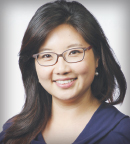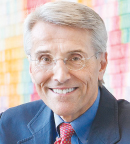OCE Insights is an occasional department developed for The ASCO Post by members of the Oncology Center of Excellence (OCE) at the U.S. Food and Drug Administration (FDA). In this installment, Jennifer J. Gao, MD, Acting Associate Director of Education in the OCE, and Richard Pazdur, MD, Director of the OCE, explore a variety of oncology educational initiatives aimed at improving the public’s understanding of the FDA’s role in oncology drug development and regulatory science and policy.

Jennifer J. Gao, MD

Richard Pazdur, MD
New Initiative
What is Project Socrates?
Project Socrates is a new initiative launched in May 2019 with the goal of building an educational network bridging oncology drug development and regulatory science and policy from the OCE to the public. Through open communication, education, and outreach, we hope to provide transparency and insight into the FDA’s role in oncology drug development and the multidisciplinary and team-based approach the FDA takes in this process.
Why was Project Socrates necessary?
The OCE was authorized by the 21st Century Cures Act and officially established in January 2017.1 (The 21st Century Cures Act, signed into law on December 13, 2016, was designed to help accelerate medical product development and bring new innovations and advances to patients who need them faster and more efficiently.)
Educating the next generation of oncology leaders and the public on the role of the FDA in oncology drug development is one of the key priorities of the OCE. Although we have had several ongoing educational opportunities, they were all individually organized. Recognizing a need for collaboration, Project Socrates was established to serve as the overarching educational network.
Fellow Participation
Who can be part of Project Socrates?
We have many opportunities for current oncology fellows in training in an Accreditation Council for Graduate Medical Education (ACGME)-accredited program, as well as ones specific to fellows at the National Cancer Institute (NCI).
In 2017, we launched the OCE Scientific Exchange Program, which offers current trainees in medical hematology and/or oncology, radiation oncology, and pediatric oncology an opportunity to spend 4 to 8 weeks at the FDA.2 The fellows are individually paired with a mentor in their disease area of interest and have the opportunity to interact with experts across the OCE, the Center for Drug Evaluation and Research, the Center for Biologic Evaluation and Research, and the Center for Devices and Radiologic Health.
“Educating the next generation of oncology leaders and the public on the role of the FDA in oncology drug development is one of the key priorities of the OCE.”— Jennifer J. Gao, MD, and Richard Pazdur, MD
Tweet this quote
With this in-depth experience at the OCE, fellows gain a better understanding of different types of FDA submissions, considerations in clinical trial design, the role of biomarkers and patient-reported outcomes, and regulatory requirements, to name a few. We are currently offering this rotation three times a year and to date have had six fellows participate in this program.
The FDA-ASCO Hematology and Oncology Fellows’ Day Workshop welcomed 45 fellows to the FDA campus on November 5, 2019, for a day of learning about investigational new drug applications, expanded access and Project Facilitate, expedited programs, companion diagnostics, and real-world evidence.3 This workshop continues in its third year with ASCO cosponsorship and has been expanded to 2 days at the FDA. In addition, this year, an additional half day was organized in Chicago prior to the 2019 ASCO Annual Meeting.
The OCE Summer Scholars Program continued in its third year. Designed to expose high school students and recent high school graduates from underrepresented and underserved communities to oncology drug development, the program not only offers students the opportunity to understand the role of the FDA, but also provides mentorship and career guidance. Students spend 6 weeks at the FDA campus with a curriculum that includes visits to the National Institutes of Health (NIH), pharmaceutical companies, local universities, and cancer advocacy groups.
The 17th Annual Accelerating Anticancer Agent Development and Validation (AAADV) Workshop will be held May 6–8, 2020, in Bethesda, Maryland.4 An interactive workshop with leaders from academia, industry, government, and advocacy, this year we will be launching two new tracks—one for international regulators and one for patient advocates. In addition, we are excited to continue offering the AAADV Core Curriculum, a half-day educational session on oncology drug development during the workshop.
“Through the success of many of the outreach and educational efforts, there has been an increased interest by fellows and oncologists in joining the FDA.”— Jennifer J. Gao, MD, and Richard Pazdur, MD
Tweet this quote
Through the success of many of the outreach and educational efforts, there has been an increased interest by fellows and oncologists in joining the FDA. For fellows who are still in training and finishing up their fellowship, there is frequently a significant period of time between their FDA interview and their start date, often up to a year. We have launched Project Gateway as an initiative to keep new FDA hires engaged during this time, inviting them to attend educational sessions at the FDA, public FDA workshops, meetings of the Oncologic Drugs Advisory Committee, and many others.
The Interagency Oncology Task Force Fellowship is a partnership of the NCI, the NIH, the FDA, and the Department of Health and Human Services.5 The program offers 4 tracks, with track 1 designed for medical oncology fellows, track 2 for board-certified medical oncologists, track 3 for postdoctoral research fellows, and track 4 for those interested in cancer prevention research. We currently have two NCI oncology fellows in track 1, who are each spending a full year at the FDA to learn about oncology drug development. Both are also involved in longitudinal research projects.
Looking Ahead
What does Project Socrates have planned for the upcoming years?
The OCE’s theme for the upcoming year is Project 2025: A Vision for the Future. As we look ahead to 2025, Project Socrates is planning to launch several new and exciting initiatives. On November 1, 2019, the OCE welcomed more than 50 oncology fellows to the FDA’s campus in White Oak, Maryland, to discuss pharmacology/toxicology, clinical pharmacology, statistics, and clinical aspects of oncology drug development. Based on the popularity and positive feedback from this pilot, we are planning to establish two new fellowships, one focused on translational oncology drug development and one focused on drug development and regulatory policy in hematologic malignancies.

The FDA-ASCO Hematology and Oncology Fellows Day Workshop leverages the combined strengths of FDA and ASCO to provide current hematology and oncology fellows with a solid foundation in oncology drug development and regulatory science.
While the current educational opportunities are primarily targeted to students and fellows currently in training, we recognize that others also have a great interest in learning more about the FDA’s role. To address this, we plan to leverage the oncology expertise within the OCE to write a publication on oncology drug development. This will eventually be paired with an online case-based learning curriculum using drugs that are already approved by the FDA as examples. We hope this initiative will provide a glimpse into the role of the FDA in oncology drug development for scientists, clinicians, patients, and their caregivers.
Although Project Socrates has only been in place for about 6 months, we are excited about the progress we have made in advancing the educational outreach efforts of the OCE during this short time. As 2020 approaches, we look forward to continuing to strengthen our current programs and build many new ones.
Further information on these Project Socrates programs can be found in the references. We can also be reached via e-mail at projectsocrates@fda.hhs.gov or on Twitter via @FDAOncology.
DISCLOSURE: Drs. Gao and Pazdur reported no conflicts of interest.
REFERENCES
1. U.S. Food and Drug Administration: OCE 2018 Annual Report. Available at www.fda.gov/about-fda/oncology-center-excellence/oce-annual-report. Accessed November 12, 2019.
2. U.S. Food and Drug Administration: OCE Scientific Exchange: Available at www.fda.gov/about-fda/scientific-internships-fellowships-trainees-and-non-us-citizens/oncology-center-excellence-fellows-program. Accessed November 12, 2019.
3. ASCO: Resources for oncology trainees: FDA-ASCO Hematology and Oncology Fellows’ Day Workshop. Available at www.asco.org/training-education/education-career-resources/resources-oncology-trainees. Accessed November 12, 2019.
4. Accelerating Anticancer Agent Development and Validation: 17th Annual AAADV Workshop. Available at https://aaadv.org. Accessed November 12, 2019.
5. National Cancer Institute: Interagency Oncology Task Force Fellowship. Available at www.cancer.gov/grants-training/training/at-nci/iotf. Accessed November 12, 2019.

